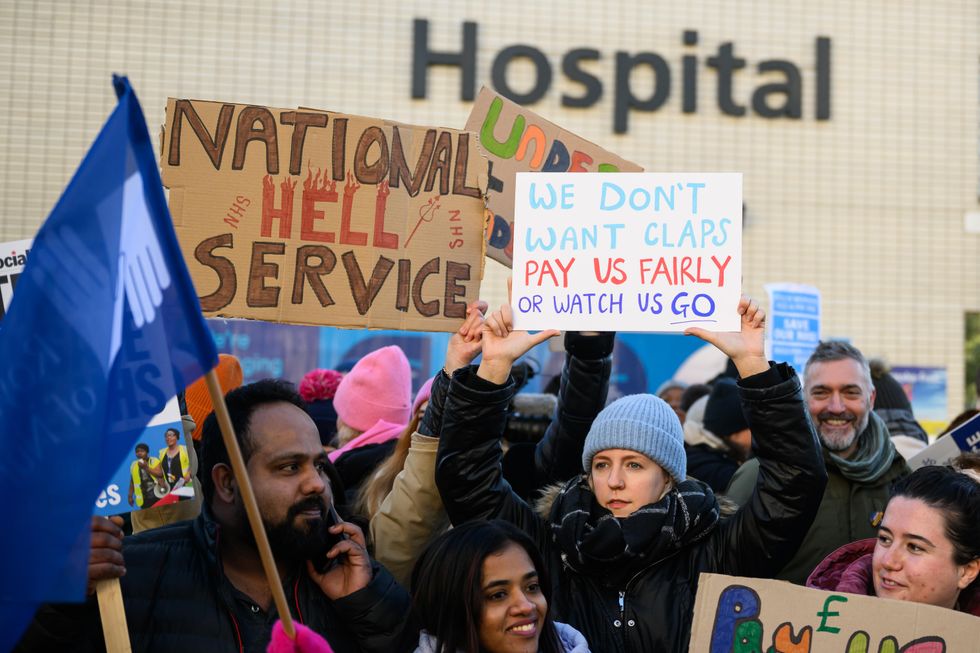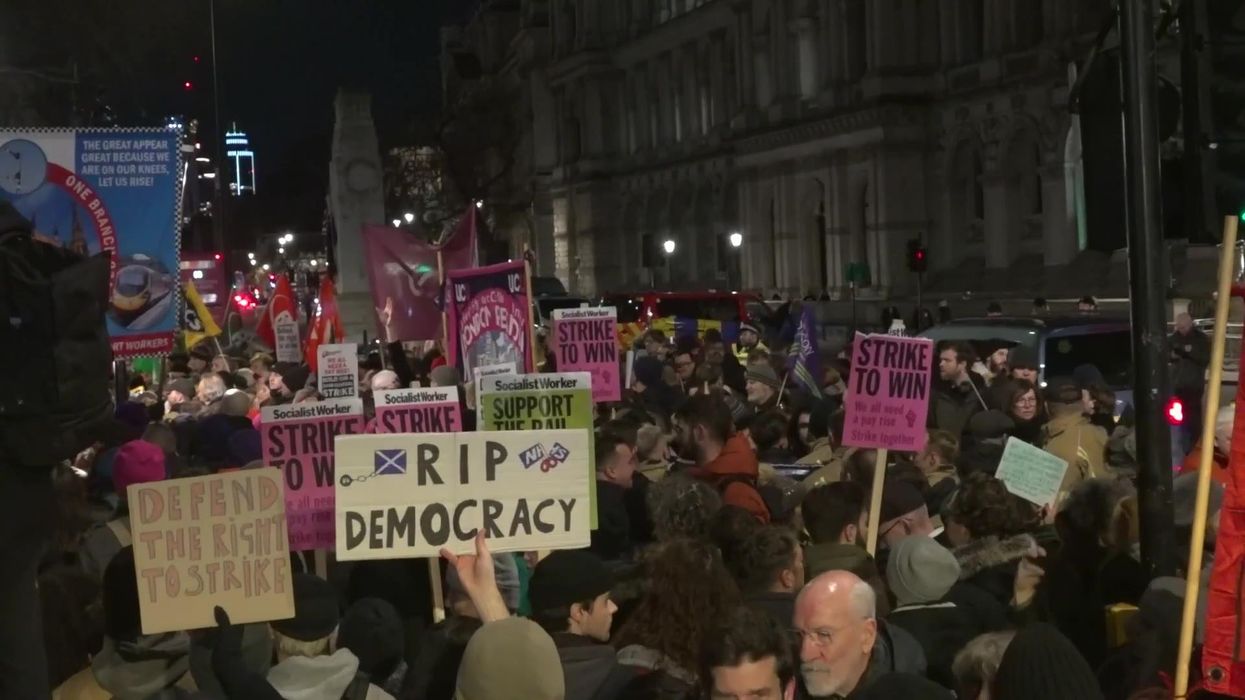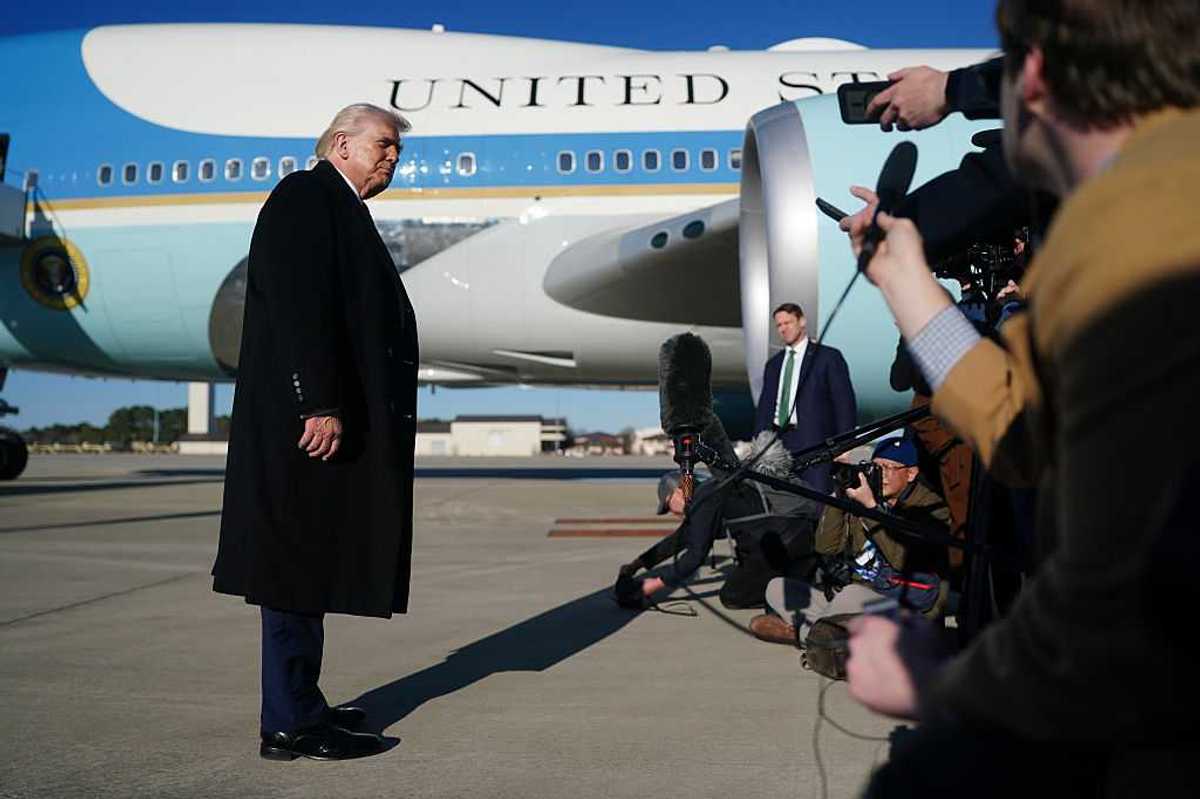Kate Plummer
Jan 31, 2023
How will the new anti-strike bill affect workers?
content.jwplatform.com
MPs have just backed controversial new legislation known colloquially as the 'anti-strike bill'.
MPs last night voted 315 to 246 in favour of the bill which sets minimum service levels for certain industries when those sectors go on strike with workers facing the sack if they refuse.
Sign up to our free Indy100 weekly newsletter
Business secretary Grant Shapps has said it will "restore balance" and union bosses have called it "dangerous" but what does it involve?
Here's everything you need to know about the legislation:
What is in the bill?

The bill gives ministers the power to set minimum service levels for fire, ambulance and rail services as well as other health and transport services, education, border security and nuclear decommissioning.
The level of service required for each sector will be decided following a consultation and employers will then be able to issue a "work notice" to unions, setting out who is required to work during strike action.
Under the legislation, there would be no automatic protection from unfair dismissal for an employee who is told to work through a notice but chooses to strike.
And if a strike takes place without obeying to the new rules, employers will also be able to sue unions for losses.
What have people said about it?
The reviews are in - and they are mixed.
Obviously, the government like it. Business Minister Kevin Hollinrake said the measures were "proportionate and sensible".
"We need to maintain a reasonable balance between the ability to strike and the ability to keep the lives and livelihoods of the British public safe," he told MPs.
Shapps, who introduced the bill to parliament, said the bill was needed to ensure a "minimum safety level" that people can expect even on strike days.
He said recent ambulance strikes left the country with a "postcode lottery" of services, which was "unacceptable".
"As well as protecting the freedom to strike, the government must also protect life and livelihoods.
"Introducing minimum safety levels... will restore the balance between those seeking to strike and protecting the public from disproportionate disruption."
But unions and opposition politicians weren't best pleased. Unsurprisingly, the RMT's Mick Lynch was an early critic of the bill and he told a select committee in January that it had bad vibes.
He said: "It tickles me that they will put non-qualified people into signal boxes to break strikes and they'll have safety incidents which they have every time they have a strike... but it's the unions that are endangering safety, it's the attempt to break the strikes that imports more danger than anything else, and it's an infringement of civil liberties.
"The right to strike is something that any democratic society will have. If they want to run the signaling system on Network Rail during a dispute in the way that they'll have to get all the signallers to work and they'll command them and conscript them to work.
"If they were doing that in Putin's Russia, or in Iran or China they would rightly be condemned," he continued. "Conscripting workers to go to work against their will is an outrage and that's what this legislation will bring forward, that either we will name them, or the companies will name them, or even the secretary of state may name individuals that have to go to work on strike days."
"How that is democratic and free in a free society, I don't understand", he added.
Sharon Graham, the leader of Unite, called it “another dangerous gimmick from a government that should be negotiating to resolve the current crisis they have caused”.
Even the Tory's own Jacob Rees-Mogg took umbrage with it, though he supports it in general. He called it "badly written" and "an extreme example of bad practice" during the pre-vote commons debate, as reported by Sky News.
He said: "This is almost so skeletal that you wonder if bits of the bones have been stolen away by wild animals and taken and buried somewhere, as if, you know, in cartoons."
Meanwhile, Labour leader Sir Keir Starmer has pledged to repeal the bill if his party comes to power, saying it is "likely to make a bad situation worse".
The party's deputy leader Angela Rayner said the bill would give the secretary of state the power to threaten key workers with the sack "on his whim".
"Riddled with holes, this bill gives sweeping powers to a power-hungry secretary of state," she told the Commons.
What industries are striking at the moment and why?
The bill comes amid a context of strike after strike after strike. November 2022 saw the highest number of strike days in a decade and in 2022 numerous strikes over pay and conditions amid soaring inflation occurred.
This included the rail strikes that saw Lynch become a household name as well as postal workers and teachers.
As 2023 begins the seeds of discontent have blossomed with more industries including nurses, ambulance drivers and civil servants striking.
Indeed, 1st February is set to be the biggest day of strikes since 2011 with hundreds of thousands of workers, including teachers, train and bus drivers, civil servants and university staff set to walk out in separate disputes.
What is next for the bill?
Now it has gone through the commons it will face scrutiny in the House of Lords who can propose amendments and ping it back and forth.
We're sure it will make more headlines then.
Have your say in our news democracy. Click the upvote icon at the top of the page to help raise this article through the indy100 rankings.
Top 100
The Conversation (0)














